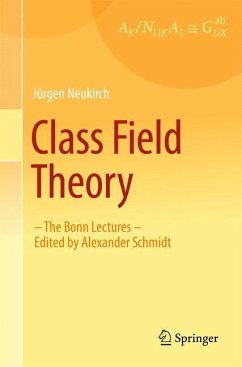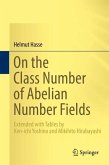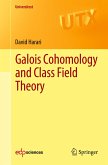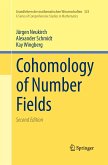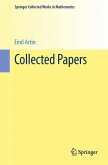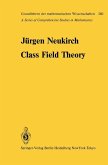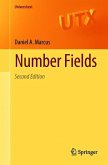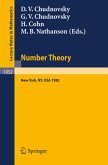The present manuscript is an improved edition of a text that first appeared under the same title in Bonner Mathematische Schriften, no.26, and originated from a series of lectures given by the author in 1965/66 in Wolfgang Krull's seminar in Bonn. Its main goal is to provide the reader, acquainted with the basics of algebraic number theory, a quick and immediate access to class field theory. This script consists of three parts, the first of which discusses the cohomology of finite groups. The second part discusses local class field theory, and the third part concerns the class field theory of finite algebraic number fields.
From the reviews:
"Offer concise treatments of independent frameworks, each fully adequate for establishing the subject's main results. The current work, actually a new English translation of notes from 1969, develops, cleanly and concisely, the purely algebraic cohomological approach invented by C. Chevalley. ... Summing Up: Recommended. Upper-division undergraduates through researchers/faculty." (D. V. Feldman, Choice, Vol. 51 (5), January, 2014)
"This manuscript provides the reader a quick and immediate access to class field theory, and for sure it can be suggested as a first introduction to the subject, thanks to the very clearly written proofs and to the accent posed on motivating the results and relating them to the more general context." (Alessandro Cobbe, zbMATH, Vol. 1282, 2014)
"Offer concise treatments of independent frameworks, each fully adequate for establishing the subject's main results. The current work, actually a new English translation of notes from 1969, develops, cleanly and concisely, the purely algebraic cohomological approach invented by C. Chevalley. ... Summing Up: Recommended. Upper-division undergraduates through researchers/faculty." (D. V. Feldman, Choice, Vol. 51 (5), January, 2014)
"This manuscript provides the reader a quick and immediate access to class field theory, and for sure it can be suggested as a first introduction to the subject, thanks to the very clearly written proofs and to the accent posed on motivating the results and relating them to the more general context." (Alessandro Cobbe, zbMATH, Vol. 1282, 2014)

